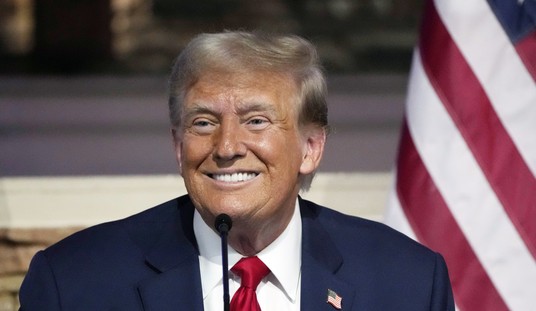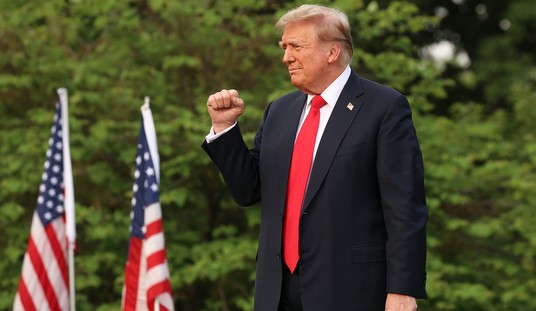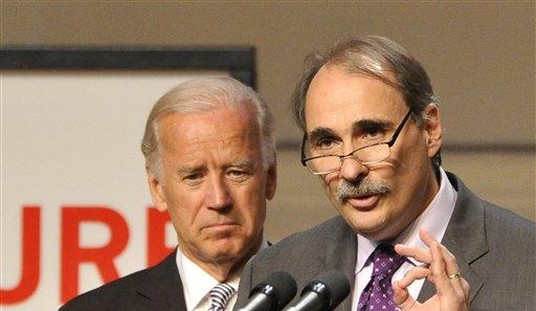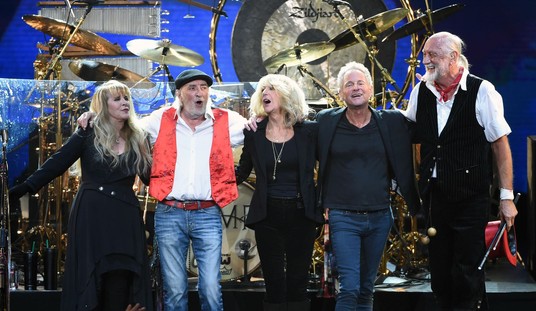(This article is the first installment of the VICI Report, a comprehensive multi-part series exploring the sophisticated use of technology in political operations. This series aims to uncover the processes, mechanisms, tools, and technologies used by Democrats to master our political processes and to develop strategies which answer and ultimately surpass their control in 2024 and beyond.)
Introduction
Andrew Breitbart famously asserted that politics is downstream from culture, implying that cultural values and norms prefigure and shape political outcomes. The conventional interpretation seems true on its face, that by the time a political issue comes to the fore, it has already been shaped and conditioned by the cultural milieu.
This perspective resonates widely, particularly among conservatives, framing politics as a passive arena, shaped by the stronger currents of cultural change. However, this viewpoint, while compelling, merits a closer examination to explore the possibility that the relationship between politics and culture may be more reciprocal than it appears.
This conventional framing of Breitbart's claim implies a sequence where cultural values and norms evolve independently of political influence, subsequently molding political outcomes. According to this view, by the time a political issue becomes prominent, it has already been influenced and conditioned by the prevailing cultural attitudes. This interpretation positions culture as the progenitor of political content, which suggests that to change politics, one must first change culture. It frames political strategies and outcomes as secondary effects, not causes, of cultural shifts.
Yet, what if the inverse relationship also holds true? What if political processes, when deliberately and strategically applied, have the power to influence and even shape cultural norms? This possibility introduces a dynamic where politics does not merely follow culture but also actively participates in its creation and modification. Such a perspective does not necessarily negate Breitbart's assertion but complicates it, suggesting that politics can also be upstream, actively engineering the cultural landscape.
When thinking about the relationship from this framing, it can also be taken to be as intrinsically true as the conventional interpretation: we know from evidence that political actors and biases have taken over nearly all of our society's institutions. This infiltration extends beyond the overtly political arenas into sectors previously viewed as neutral or apolitical, such as academia, media, health care, child development, professions requiring advanced education, high finance, and even corporate environments.
This strategic penetration underscores a critical dimension of the interplay between politics and culture—it is not merely that culture informs politics, but that politics, through deliberate process and design, actively reshapes and repurposes cultural institutions to serve political ends.
With this in mind, it becomes critical to understand the processes by which the extreme political element successfully transformed our cultural sectors before it's possible to fully understand Breitbart's maxim.
Culture Shaped by Power
The assertion that political processes can actively shape cultural domains highlights the significant impact of political influence on societal institutions. These dynamics reveal a transformative effect on areas once considered culturally neutral. Through strategic methods, the depth of ideological reshaping across various cultural landscapes becomes evident, illustrating how deeply politics penetrate and alter the foundational aspects of society.
These manifest outcomes, and the mastery of political processes which engineer them, did not emerge in a vacuum but rather represent an evolution of understanding and skill built over decades. This evolution is best called the 'Long March Through the Institutions,' a strategy defined, and phrase coined, by the Frankfurt School of neo-communist philosophers of the 1960s.
Their approach embodies a systematic strategy to infiltrate and dominate various societal institutions, transforming them into vehicles for extreme leftist ideologies. It not only embeds these ideologies deeply within cultural institutions like education and media but also seeks to mold societal norms and perceptions from within.
Complementing this strategy, Saul Alinsky's Rules for Radicals provides a tactical blueprint for how to effectuate such sweeping changes under the guise of reform. These methodologies highlight a calculated effort to repurpose institutions traditionally seen as apolitical into champions of a specific political agenda, effectively reshaping the cultural landscape to align with their ideological goals.
Once entrenched within these institutions, leftist elements utilize a variety of political processes to cement their influence and expand their control. Key among these is the strategic manipulation of hiring practices to favor ideologically aligned individuals, thus ensuring a perpetuation of their agenda.
Opponents are systematically undermined through career sabotage or public denigration, while adherents are promoted and given platforms to advance the cause. This method extends into the educational domain, where young minds are shaped through a blend of grading biases and curriculum slants that promote Marxist and neo-communist viewpoints as innovative solutions to societal issues.
Additionally, in corporate and governmental sectors, similar tactics are employed to control narratives and resources, ensuring that these institutions function as extensions of the political ideology rather than serve their original, neutral purposes. These practices demonstrate a comprehensive approach to institutional control, effectively transforming these areas into instruments of political will.
This can be observed in the corporate sphere, where "Human Resources" managers and corporate bureaucracies enforce policies that powerfully promote political alignment, creating environments that favor specific ideologies. Traditional non-profits are similarly manipulated, with staff hiring and grants programs directed to support aligned causes and suppress dissent.
Government bureaucracies are similarly commandeered to funnel taxpayer money toward sustaining leftist agendas, a practice extensively documented by David Horowitz's discoverthenetworks.org. This platform, alongside the insights from the late conservative leader Howard Phillips, founder of the venerable The Conservative Caucus, highlights how deeply these political motivations are embedded within government and government-adjacent structures.
In the media landscape, journalism and entertainment sectors are dominated by narratives that align with leftist views, effectively shaping public perception and discourse. This control extends into the realms of higher professional education—medicine, law, policing, and the sciences—where curricula are skewed to propagate specific political doctrines. Furthermore, universities utilize the influx of unlimited student loan money to hire activist administrative staff in huge numbers, ensuring that educational institutions serve as breeding grounds for future advocates of these ideologies on the backs of government guarantees.
In addition to the sweeping control within professional and governmental spheres, leftist ideologies penetrate even the personal realms of daily life. Traditional social networks, particularly in settings like New York society and Washington D.C., serve as stark examples of this pervasive influence. These networks actively exclude non-compliant Republicans, creating social pressures that eventually coerce conformity.
The isolation experienced by these individuals often leads to significant personal compromises, as excluded members find their social and familial circles urging them to align with the dominant political narrative for the sake of reintegration. This subtle yet powerful mechanism of social exclusion underscores the extensive reach of ideological control, affecting not just public and professional policies but also the intimate dynamics of community and personal relationships.
The use of simple but relentless political processes such as favoring allies and sidelining dissenters has profoundly reshaped cultural institutions, demonstrating that politics does indeed actively sculpt culture. This strategy, applied repeatedly across diverse sectors—from academia to social networks—illustrates how extensive these political processes become ingrained within cultural domains.
While this might seem to affirm Breitbart's maxim that politics is downstream from culture, the deliberate construction of cultural landscapes through a nuanced mastery of political techniques underpins this complex interaction.
Power is Mastery of Process
In examining the interplay between politics and culture, it becomes evident that the mastery of political processes is akin to mastering any complex skill, such as software engineering or culinary arts. An adage from software engineering, "know the warts," aptly applies to political mastery—knowing the intricacies and pitfalls of a system well enough to manage and engineer its subtle nuances effectively to desired ends.
The concept of mastery in politics involves a deep understanding of the systems within which one operates. This expertise allows political actors to navigate these systems adeptly and to push boundaries when opportunities arise.
For instance, knowing the ins and outs of legislative procedures, bureaucratic functioning, or electoral strategies enables these actors to exploit loopholes, influence policy, and outmaneuver opponents. This level of skill is developed over time through experience and sustained engagement, much like a chef learns to perfect dishes by understanding ingredients and cooking processes deeply.
Furthermore, mastery in politics also involves a keen awareness of the social and cultural levers that can be pulled to gain public support or suppress dissent. This includes shaping narratives through media, influencing educational content, and altering the public discourse to normalize specific political or ideological views. Successful political figures and movements understand that influencing these areas creates a ripple effect, changing public perception and ultimately leading to changes in cultural norms and values.
As political mastery involves both the subtle nuances of personal skill and the broader application of power within institutions, it becomes a critical component in the bidirectional influence between politics and culture. This understanding reveals that mastery of political processes is essential for maintaining and expanding influence within any arena, political or otherwise.
Role of Process in Influence
The strategic and tactical elements of political processes are central to understanding how influence is exerted over cultural institutions. At its most basic, the political process can be illustrated by the act of placing a ballot in a box. However, the implications of this act stretch far beyond the simple casting of a vote.
The processes leading up to and following that moment—campaigning, policy-making, voter engagement, and the interpretation of electoral results—are all parts of a complex system that can be mastered to achieve specific cultural and political outcomes.
Influencing up, down, and laterally within this system reflects a set of skills that are applicable across various fields, from the corporate to the political. Whether dealing with ideological shifts, mundane administrative adjustments, or crafting overarching policies, the fundamental processes are consistent. This universality underscores that the strategies used to sway opinion, garner support, or suppress dissent in politics are akin to those used across all those where process itself applies.
Moreover, understanding "Culture" as a type of influence rather than a static set of values or norms reveals its dynamic nature. Culture is not just a backdrop against which politics happens; it is a malleable field that can be shaped and reshaped through deliberate actions. Recognizing culture as a learnable, manipulable, and masterable process allows for a more proactive approach to cultural engagement and political success, challenging the traditional perception of culture as merely a byproduct of societal evolution.
The notion that everything from casting a ballot to crafting a policy involves manipulable processes highlights the need for a deep understanding of these mechanisms. For political actors, particularly those Democrats who build platforms, services, and apps, mastering these processes is literally akin to engineering systems in technology. This mastery involves not just learning specific strategies but grasping the concept of process itself.
For the GOP and others, understanding this principle is crucial to effectively navigating and influencing both political and cultural landscapes. This comprehensive grasp of the role and manipulation of processes by the Right, with precision and foresight, is what will ultimately enable the engineering of both political and cultural victory.
Conclusion
Andrew Breitbart famously posited that politics is downstream from culture, suggesting that cultural forces shape the political landscape. However, the evidence we've examined presents a compelling case for a more nuanced relationship, where political processes actively sculpt and redefine cultural realms. This dynamic interplay reveals that political actors, through deliberate strategies and mastery of processes, have not only influenced but reshaped cultural institutions to align with specific ideological goals.
The 'Long March Through the Institutions' and tactics like those outlined in Saul Alinsky's Rules for Radicals exemplify how deeply political mechanics can penetrate into areas once deemed apolitical, such as education, media, and even personal social networks. These strategic infiltrations demonstrate the capacity of political forces to engineer cultural environments that perpetuate their ideologies, challenging the notion that culture merely influences politics and underscoring that politics can, indeed, flow upstream.
This realization invites readers to reconsider the traditional views of cultural influence and encourages a deeper exploration into how political processes are intricately woven into the fabric of societal norms and values. The implications of this analysis are vast, suggesting that understanding and mastering these political processes is not merely an academic exercise but a necessary endeavor for anyone looking to build victory.
Sinistra Delenda Est!
In the next installment of the VICI Report series, learn why mastery of process and technology is critical for success against the manipulations of the extreme Left along with a roadmap of the rest of the series, from Democrats’ digital dominance to the necessary GOP tech awakening.
The VICI Report and Project VICI are projects of UpHold America, led by Paul Porter (X:@PaulPorterPVB) and Jason Belich (X:@BelichJason).
The VICI Report series is a culmination of many months of sleepless nights; the product of exhaustive research and analysis into the technologies used in politics by a Democrat adversary excessively skilled at manipulating political outcomes. Your support is critical to the success of this mission. Please visit our website, support our GiveSendGo, or join our Substack to contribute.














Join the conversation as a VIP Member